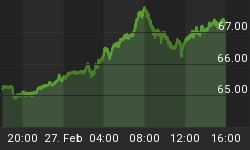Big Tech is in the race of a lifetime, and now it’s not just about data. This time around, they’re facing off to see which giant can go green - and fast. From Facebook to Microsoft, tech giants are ramping up their efforts to pivot to renewable energy. But the biggest, and maybe most surprising announcement to date has come from Google, which just pledged to run on 100% carbon-free energy within the next 10 years.
On Monday, Google CEO Sundar Pichai spoke with Reuters, explaining that “We have until 2030 to chart a sustainable cause for our planet or face the worst consequences of climate change,” adding. “We are already feeling those impacts today from historic wildfires in the US to devastating flooding in many parts of the world.”
Now, Google is no stranger to renewable energy. In fact, it’s been carbon-neutral for nearly 13 years. It’s even bought enough carbon credits to offset its carbon dioxide emissions the company has released since it was founded in 1998. But as Google is aware, simply buying carbon credits isn’t enough to tackle the issue at hand.
Google emitted over 4.9 million metric tons of greenhouse gases in 2018 alone, that’s more than over one million gas-powered vehicles.
“To plan 24/7 hourly being carbon-free in our data centers and campuses around the world, we see an enormous logistics challenge, which is why we’ve been hard at work modeling the last year how to get there,” Pichai explained. “And we feel confident we can get there by 2030.”
It will be quite the endeavor, however. Though Google’s data centers are largely powered by renewable purchases, ditching fossil fuels and electricity providers which use fossil fuels creates a number of challenges. From battery technology to large-scale solar and wind projects, there’s still a long road ahead for the tech giant.
Google isn’t ruling out nuclear energy, either. And while it is not considered renewable, it is considered carbon-free. As technology advances, in fact, nuclear waste could even be put to good use, further easing points of criticism for the fuel.
Pichai wrote in a blog post, this move to go green will mean that “every email you send through Gmail, every question you ask Google Search, every YouTube video you watch, and every route you take using Google Maps, is supplied by clean energy every hour of every day,”
Though the goal is ambitious, Google’s move to go green will help pave the way for other tech giants to do the same.
By Michael Kern for Oilprice.com
 |
Gold •604 days | 2,368.70 | +35.30 | +1.51% |
 |
Platinum •15 mins | 2,373.50 | +133.90 | +5.98% |
 |
WTI Crude •4 hours | 67.02 | +1.81 | +2.78% |
 |
Gasoline •6 hours | 2.068 | +0.036 | +1.77% |
 |
Ethanol •604 days | 2.161 | +0.000 | +0.00% |
 |
Silver •604 days | 30.82 | +1.16 | +3.92% |
 |
Silver • 604 days | 30.82 | +1.16 | +3.92% | |
 |
Copper • 604 days | 4.530 | +0.111 | +2.51% | |
 |
Brent Crude • 3 hours | 72.87 | +2.03 | +2.87% | |
 |
Natural Gas • 4 hours | 2.859 | +0.032 | +1.13% | |
 |
Heating Oil • 6 hours | 2.636 | +0.023 | +0.88% |


Pentagon Resignations Illustrate Our ‘Commercial’ Defense Dilemma
The Pentagon isn’t a business,…

Food Prices Are Skyrocketing As Putin’s War Persists
Russia’s war in Ukraine is…

Russia’s $150B Default Risk And What It Means For Investors
Russia’s economy is sinking, its…









